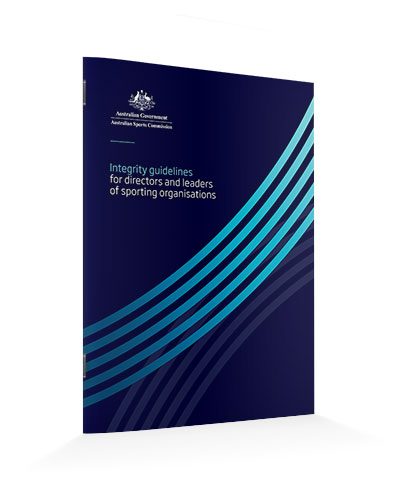Sports directors must focus on ‘integrity’ issues
INTEGRITY issues are creating some of the biggest challenges for Australian sports administrators – and directors of sporting oeganisations are being urged to get up to speed fast. The consequences of overlooking these issues has already caused the downfall of several sports clubs.
To assist, the Australian Sports Commission (ASC) has published a document titled Integrity Guidelines for Directors and Leaders of Sporting Organisations. However, legal specialist in the area, John Mullins of Mullins Law, has warned that too may sports administrators are not taking precautionary measures against integrity challenges that may face their organisations. 
There have been the high profile Essendon and Parramatta football drug cheating sagas right through to illicit drug problems with high profile players. Also rocking sports codes has been criminal convictions for match fixing; sports aspects of the the Royal Commission into institutional responses to child sexual abuse; and cases relating to member protection and behaviour of participants – including parents, staff and coaches – in amateur as well as professional sport
“It is somewhat ironic that these integrity guidelines have been published at around the same time as the Parramatta saga appears to be going from bad to worse, certainly from the point of view of the involvement of the board,” Mr Mullins said.
“The document is an interesting one because whilst it’s called guidelines, it’s actually not. It encourages directors: ‘to achieve appropriate oversight of their organisation’s integrity framework and ensure their responsibilities as a director are fully discharged. Individual directors must fully inform themselves of the organisation’s integrity practices’.”
Mr Mullins said the paper also lists a large number of questions, aimed at helping directors to answer questions that may come their way or to seek early answers within their organisations.
“These questions are listed under the headings of General, Sports Science, Sports Medicine, Anti-Doping, Illicit Drugs, Match Fixing, Member Protection and Child Protection,” Mr Mullins said.
“All sport watchers will quickly recognise that these specific headings are areas which have been in the headlines considerably over the last 12 months.” 
He recommended that those involved in sports administration, or with any interest in that area, take a close look at the document.
“As I said, it poses questions, it doesn’t provide answers,” Mr Mullins said. “But it gives an insight into the challenges for sporting organisations and the length and breadth of the steps that need to be taken by organisations to ensure that they meet high levels of integrity.
“Frankly, these are big issues and without significant resources being allocated to them very little improvement will occur. Whilst raising the issue is important and valuable, it doesn’t provide the answers as to how sport is going to address all of these challenges.”
Mr Mullins said it would be interesting to see how sports bodies in general respond to the ASC on these issues.
“Previously with governance principles, the ASC initially sent out a set of principles and then, for the larger sports, these principles became mandatory principles,” he said, pointing out that following the principles was vital if administrators wanted to continue receiving ASC funding.
“It will be interesting to see what direction the ASC goes in relation to these integrity guidelines, as it seems to be becoming clearer and clearer that for many organisations there is a lot of room for improvement.”
The paper can be accessed via the Ausport website.
ends

 How to resolve AdBlock issue?
How to resolve AdBlock issue?